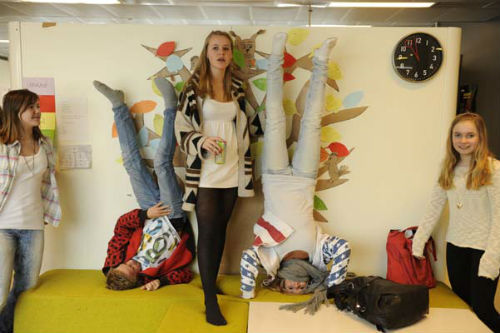
What role should education play in the success of economies? How can the schools of today better represent the world of 5, 10, and 25 years from now? Will educational inequalities exacerbate economic inequalities? How can we break the chain? Does the PISA test need to evolve in order to remain relevant? These are some of the questions I put to Stefan Dercon, Chief Economist at the Department for International Development in London, and Andreas Schleicher, Director for Education and Skills and Special Advisor on Education Policy to the Secretary General at the OECD in Paris, during the EFF12 debate: “Turning School Performance to Economic Success.”
Gentlemen:
How can the schools of today better represent the world of 5, 10, and 25 years from now?
Stefan: Even in the poorer developing countries, the children in schools now will grow up in a far more connected, complex world than they are experiencing today. These children are growing up in a world that should offer them more opportunities, but we cannot take it as given that they can take them: jobs won’t be guaranteed nor the accountability of their leaders. Improving the basic learning outcomes of children is one step, but it would also be important to encourage them to think more independently and creatively, so they can stake a claim over their own future, rather than be told what to do.
Andreas: When we can access the world’s knowledge on the internet, when routine skills are being digitized or outsourced, and when jobs are changing rapidly, accumulating knowledge matters less, and success becomes increasingly about ways of thinking – creativity, critical thinking, problem-solving and judgment; about ways of working – collaboration and teamwork; about tools for working, including the capacity to recognize and exploit the potential of new technologies; and about the social and emotional skills that help us live and work together.
Conventionally, our approach to problems was breaking them down into manageable bits, and then to teach students the techniques to solve them. But today we create value by synthesizing the disparate bits. This is about curiosity, open-mindedness, and making connections between ideas that previously seemed unrelated, which requires being familiar with and receptive to knowledge in other fields than our own. Perhaps most importantly, in today’s schools, students typically learn individually and at the end of the school year, we certify their individual achievements. But the more interdependent the world becomes, the more we need great collaborators and orchestrators. Innovation today is rarely the product of individuals working in isolation but an outcome of how we mobilize, share and link knowledge. Success will be with those who master the new forms of collaboration. Schools need to come to grips with this new world.
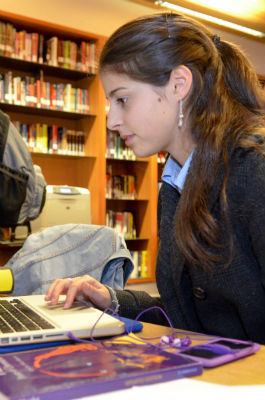
Will educational inequalities exacerbate economic inequalities? How can we break the chain?
Stefan: In the poorer developing countries, education is not a guarantee anymore for a job; it never was a guarantee for an open society where elites are accountable. But it remains one of the most powerful forces of change, offering poor people the chance to move up in the world, to benefit from economic opportunities, and indeed, to stake their claim in the politics of these countries. Education is a powerful means to challenge elites, so it is in their interest to foster educational inequalities to sustain their positions. But making the case for a good education for all remains possible across the world: even elites need a good education system for the broad population to keep their economies and societies functioning. We need to remind leaders of this, across the world, and continue to make it a fundamental part of their political accountability.
Andreas: With the link between skills and economic and social outcomes tightening each day, inequality in skills breeds inequalities in employment, income and social participation. We can deal with economic inequalities through redistribution – e.g. using taxes to collect money from the rich and give it to the poor – but that’s just about dealing with the symptoms of the problem and it only deals with the economic dimension. If we want to deal with the source of the problem and create better life chances for all, we need to give many more people better skills to collaborate, compete and connect.
Do you believe the PISA test needs to evolve in order to remain relevant?
Stefan: Of course, there is a good case for improving measurement. But benchmarks such as PISA, in their pure sense, unchanged over time, do offer an important source of global accountability. I would love to see more of this test across middle income and lower income countries – as a useful even if not perfect indicator of educational quality. Beauty contests via international rankings play a useful role to combat complacency by political leaders, although rankings can never be the aim of education alone, but more the start of a conversation on the quality of education systems.
Andreas: Yes, absolutely, as the demand for skills change, our PISA assessments need to evolve too. And they have. In 2000, we tested literacy by giving people printed texts to read, because that’s the way in which we used to read back then. In 2009, PISA asked students to construct their own texts with a digital assessment, and they had to navigate complex and sometimes ambiguous information structures on the web that are so typical for the digital world today. In 2012, we added creative problem solving to the test and in 2015 it will be the first aspects of social skills.
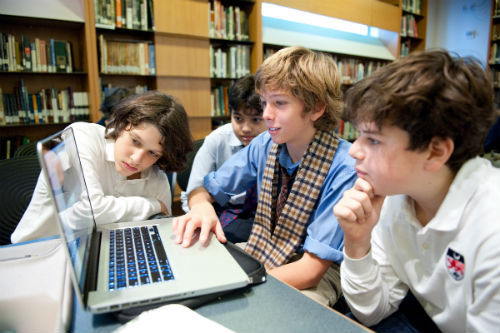
How can the developing world provide adequate STEM resources to train the innovators of tomorrow?
Stefan: The first challenge is not resources but to improve the quality of the education systems. With developing country economies growing, resources have been growing as well, and the opportunities for better education for all are there. But the systems have not improved – indeed, there seems to be surprisingly high complacency, contrary to, for example, what has happened in health systems. While health indicators have been improving almost surprisingly fast, combining resources, systems, innovation and technology even in the poorest developing countries, the quality of education has suffered relative to the quantity in terms of enrollment at all levels. The best starting point to get the right skills and innovation for tomorrow is to exploit the huge scope for improvements in the quality of education systems now.
How do we insure that the economic benefits of education reform are shared with women and with those living in poverty?
Stefan: For all societies, not involving women and the poor in the economy or the functioning of society is a waste of talent and productive resources. Education remains one of the most cost-effective, fair ways of sharing the benefits of progress broadly, while it provides the fuel and sustenance for long-term growth. Education systems will not deliver to the economy and society if they are too exclusive, and we need to keep reminding leaders making political choices on this.
Andreas: Making high quality education accessible to all is our best bet to empowering women and those living in poverty.

Are we at the point where Broadband access should be considered a human right?
Stefan: I doubt that access to a technology should be human right – this seems to make one possible instrument for human dignity a goal on its own. For me, a right to information and rights to be able to act on information are more fundamental. Whenever we get excited about technology we do well to ask what problem we are trying to solve. And the problem here is first and foremost citizens being denied easy and low-cost access to information that could improve their lives or that could hold power to account, and this is the realm of rights. If broadband is one possible cost-effective solution, let’s do all we can to ensure we roll it out as quickly as we can to all.
Andreas: Probably, but let’s start with making high quality education a human right.
How can we be sure that education in the arts remains an important part of education reform?
Stefan: The arts remain an important means to express ideas and concepts for all cultures, and no management speak or vocational skill that business likes will overcome this. Imagination and clarity of expression are hard to teach – but even in the poorest societies, it remains important to foster these to deal with and make sense of fast changing economies and societies.
Andreas: Good education will always give the arts their prop.
For more information on Education Fast Forward 12
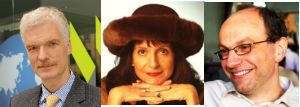
(Photos are courtesy of OECD, The Dwight School US, Beechwood School UK)
Join me and globally renowned thought leaders including Sir Michael Barber (UK), Dr. Michael Block (U.S.), Dr. Leon Botstein (U.S.), Professor Clay Christensen (U.S.), Dr. Linda Darling-Hammond (U.S.), Dr. MadhavChavan (India), Professor Michael Fullan (Canada), Professor Howard Gardner (U.S.), Professor Andy Hargreaves (U.S.), Professor Yvonne Hellman (The Netherlands), Professor Kristin Helstad (Norway), Jean Hendrickson (U.S.), Professor Rose Hipkins (New Zealand), Professor Cornelia Hoogland (Canada), Honourable Jeff Johnson (Canada), Mme. Chantal Kaufmann (Belgium), Dr. EijaKauppinen (Finland), State Secretary TapioKosunen (Finland), Professor Dominique Lafontaine (Belgium), Professor Hugh Lauder (UK), Professor Ben Levin (Canada), Lord Ken Macdonald (UK), Professor Barry McGaw (Australia), Shiv Nadar (India), Professor R. Natarajan (India), Dr. Pak Tee Ng (Singapore), Dr. Denise Pope (US), Sridhar Rajagopalan (India), Dr. Diane Ravitch (U.S.), Richard Wilson Riley (U.S.), Sir Ken Robinson (UK), Professor PasiSahlberg (Finland), Professor Manabu Sato (Japan), Andreas Schleicher (PISA, OECD), Dr. Anthony Seldon (UK), Dr. David Shaffer (U.S.), Dr. Kirsten Sivesind (Norway), Chancellor Stephen Spahn (U.S.), Yves Theze (LyceeFrancais U.S.), Professor Charles Ungerleider (Canada), Professor Tony Wagner (U.S.), Sir David Watson (UK), Professor Dylan Wiliam (UK), Dr. Mark Wormald (UK), Professor Theo Wubbels (The Netherlands), Professor Michael Young (UK), and Professor Minxuan Zhang (China) as they explore the big picture education questions that all nations face today.
The Global Search for Education Community Page
C. M. Rubin is the author of two widely read online series for which she received a 2011 Upton Sinclair award, “The Global Search for Education” and “How Will We Read?” She is also the author of three bestselling books, including The Real Alice in Wonderland, is the publisher of CMRubinWorld, and is a Disruptor Foundation Fellow.
Follow C. M. Rubin on Twitter: www.twitter.com/@cmrubinworld





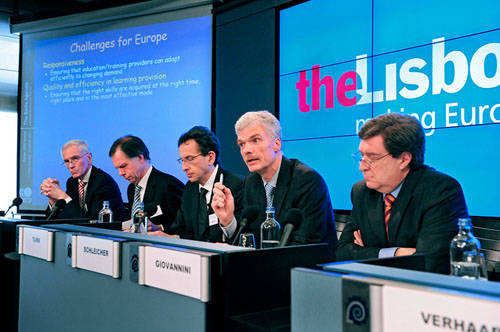
Recent Comments